Sustainable Public Forest Management in Catalonia with a Wood-Mizer Sawmill
By Juanma Miranda, Madera-Sostenible
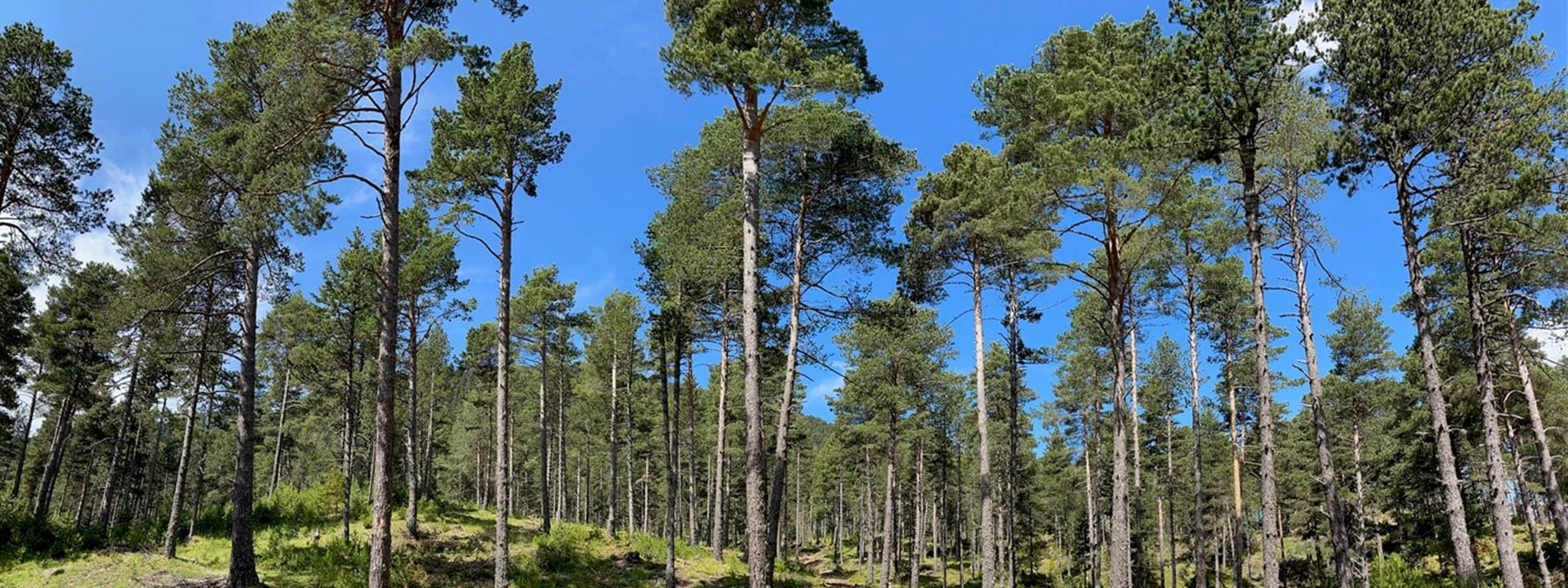
Video: Ignacio González, UTOPIA FILMMAKERS
The MMBB project that joined several urban communities in Catalonia is successfully developing a circular economy for the efficient and waste-free use of wood from public forests.
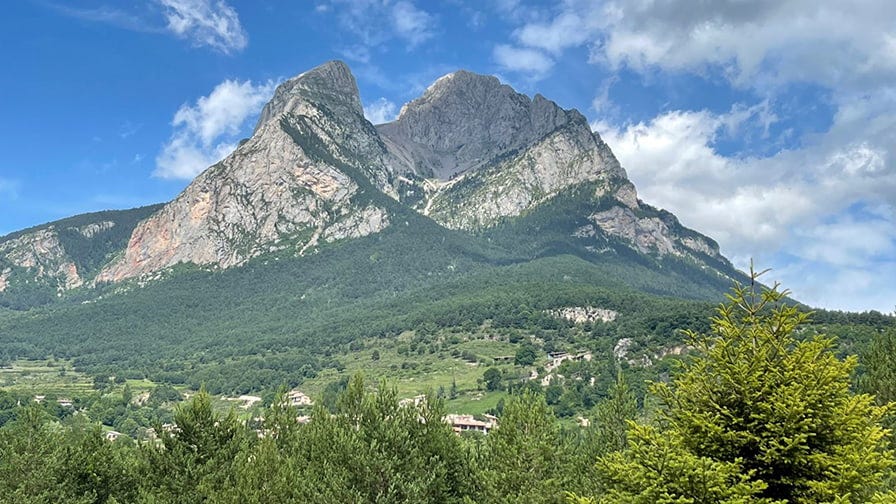

MMBB (Mancomunidad de Municipis Bergedans per le Biomassa) is a project of eight town councils and the Ministry of Agriculture of the Catalonian Government. The project is a striking example of cooperation between different size towns (for example, Berga has 17,000 inhabitants, while Gisclareni has only 30). "The purpose of the MMBB is the sustainable management of our public forests," says Moisés Masanas López, mayor of Saldes.
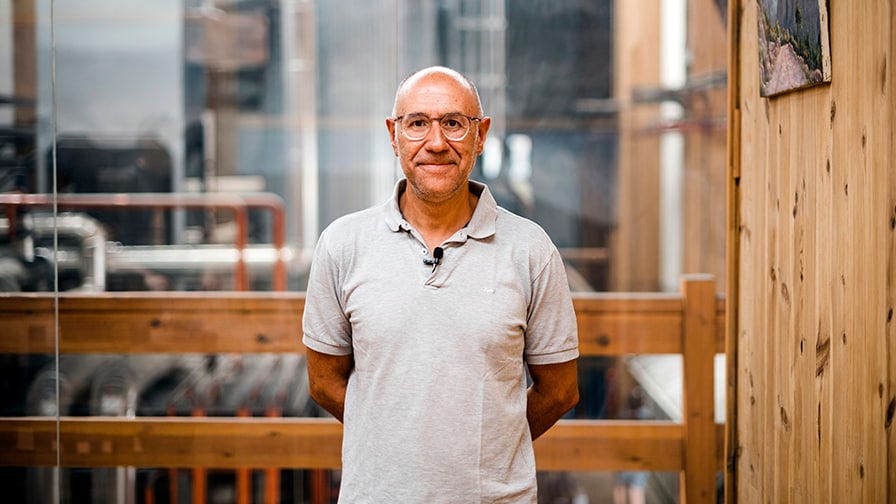

Moisés Masanas López, Mayor of Saldes
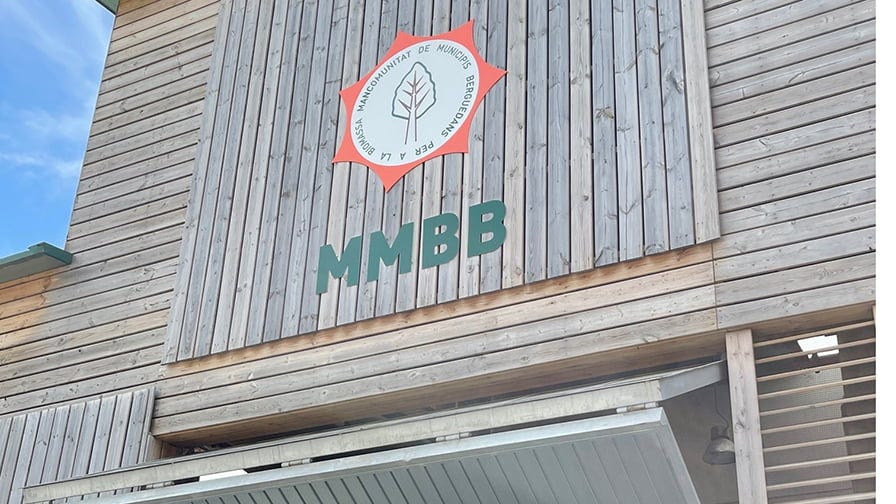

Sustainable forest management in Catalonia
The project was born in 2012 when seven town councils signed the first agreement, then the Ministry of Agriculture joined it, and at the end of 2019, one more town council in Solsonès also entered into the MMBB.
"We have several projects," says Moisés Masanas. "First, we decided to create a woodchip market for fourteen boilers that feed 32 objects in our area. This project allows us to use wood waste that would otherwise have zero value."
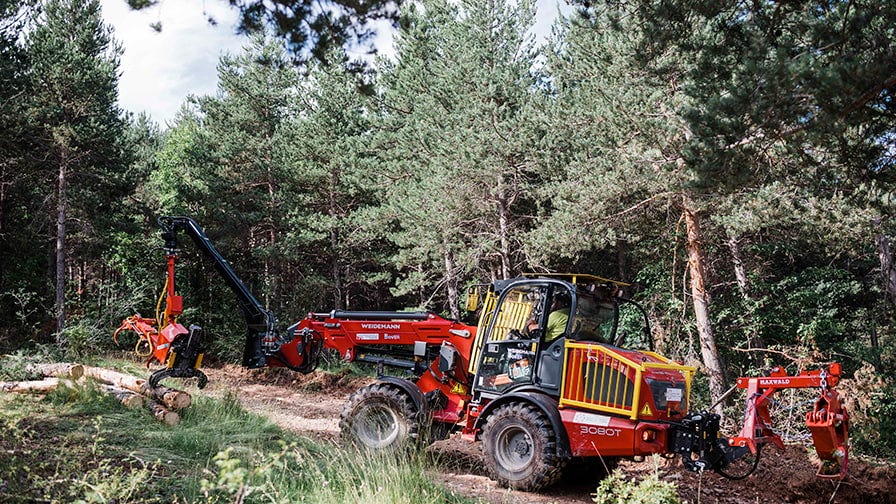

The first step was the construction of boiler plants, including a boiler to provide thermal kilowatts for the industrial zone in Berga.
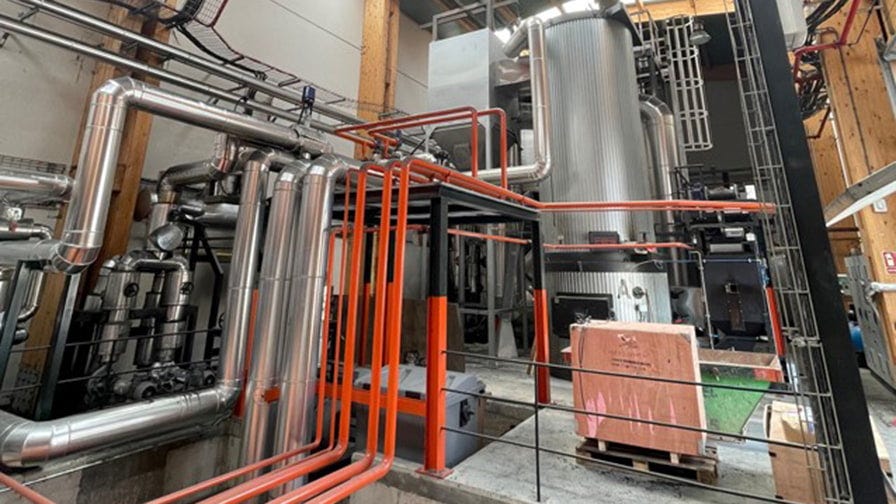

"Later, we started a project to increase the added value of wood. We believe that if we have a product to manage, but the product has a low market value, it hurts us. Therefore, we need to make sure that the product's value is increasing. Plus, we have quality wood that we don't want to use to produce cheap products. With the Wood-Mizer sawmill, we are solving this problem and bringing a new, higher-value product to the market."
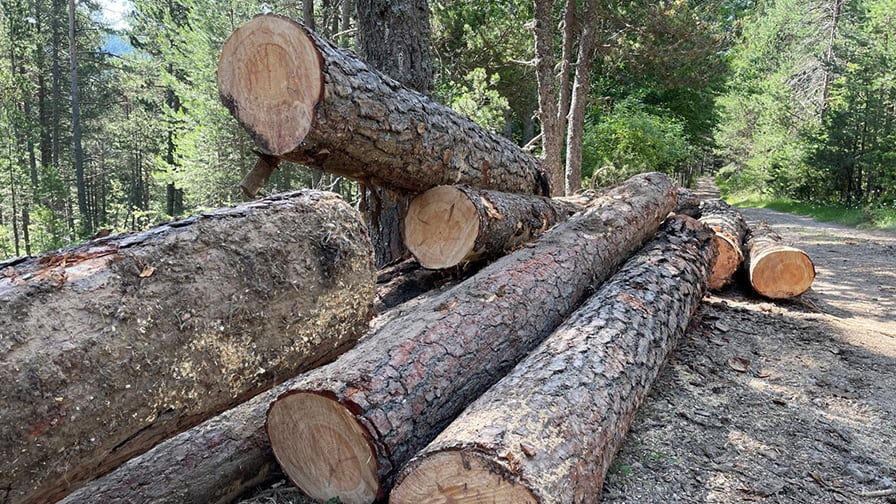

Increasing the value of wood
"We installed the Wood-Mizer sawmill in Saldes," says Luis Lluis Campmajò Puig, Mayor of Gósol. "We cut logs, and for those who need it, we have timber, boards, planks… good wood for everything from the table to the roof, from a beam to whole house renovations."
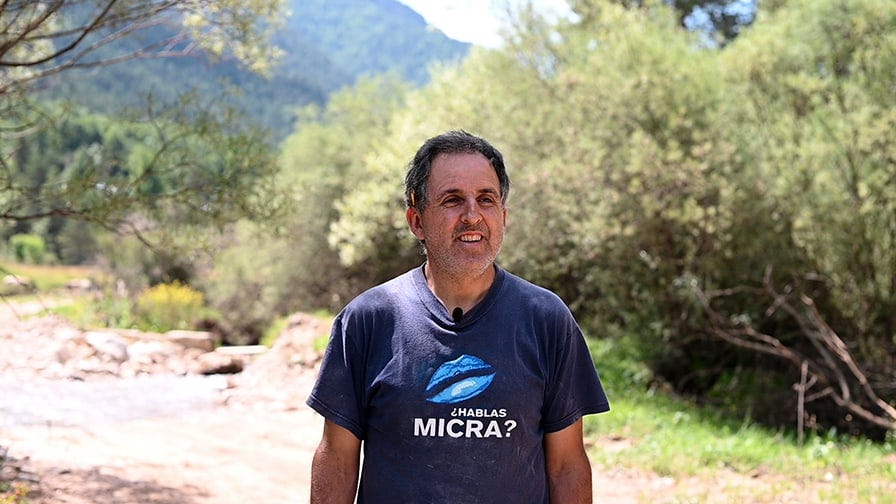

Lluis Campmajò Puig, Mayor of Gósol
"The sawmill works great," says Lluis Campmajò. "We need to use this to add value to our timber. I am thinking about making wooden houses in our region, a finished product. We will use the wood from our forests, cut it, dry it and build houses."
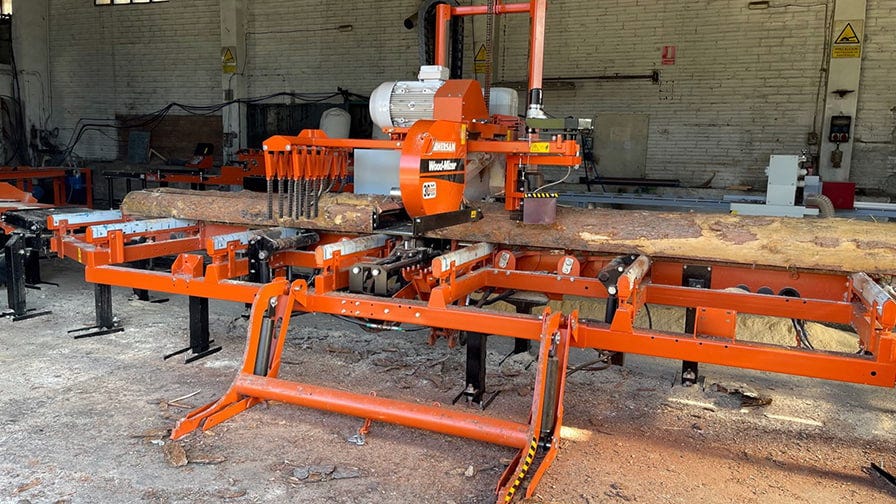

"We source the highest quality logs from the forest and produce boards in various sizes for carpentry or urban projects that need wood," says Anna Jordà, Wood-Mizer sawmill operator at MMBB.
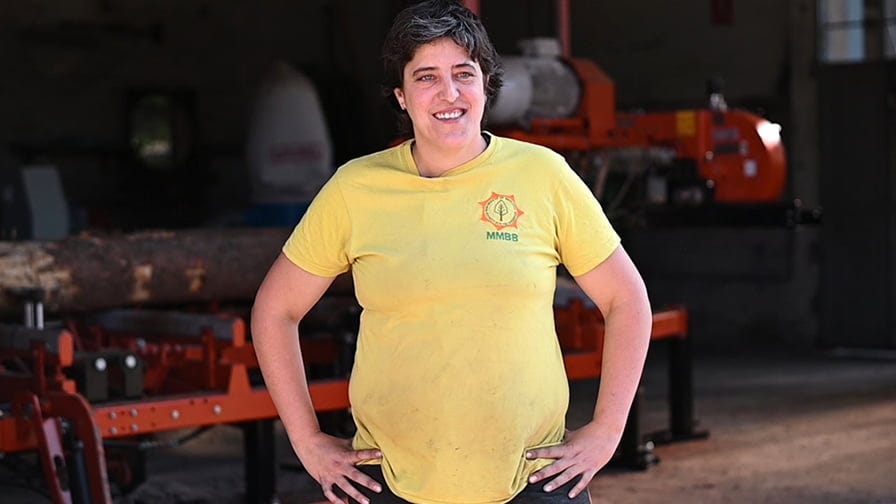

Anna Jordà, Wood-Mizer sawmill operator
"With the help of the Wood-Mizer LT40 machine, we make boards with the required thickness. Then another machine, Wood-Mizer EG300, cuts to the width and a third one cuts to the length. This way, we get products with the proper dimensions."
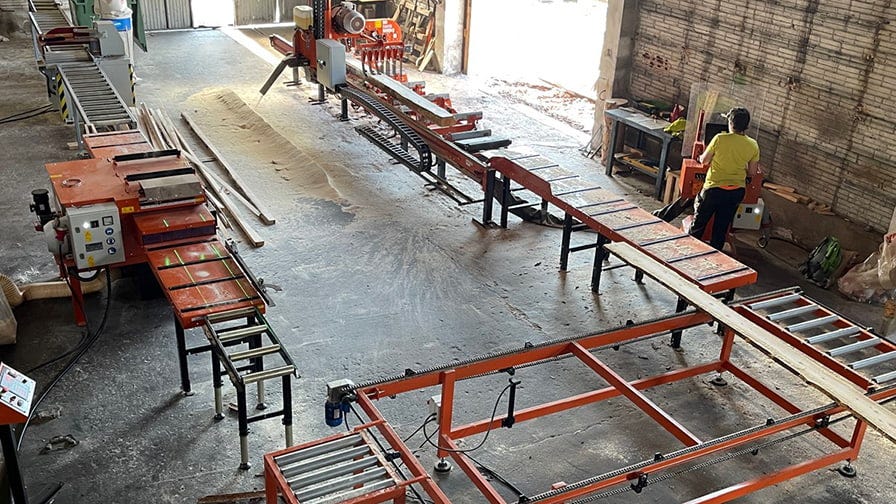

The Wood-Mizer LT40 sawmill is operated remotely from the control station, where the operator controls all parameters. Here the operator sets the required board thickness, and then the saw head is automatically positioned in the proper place.
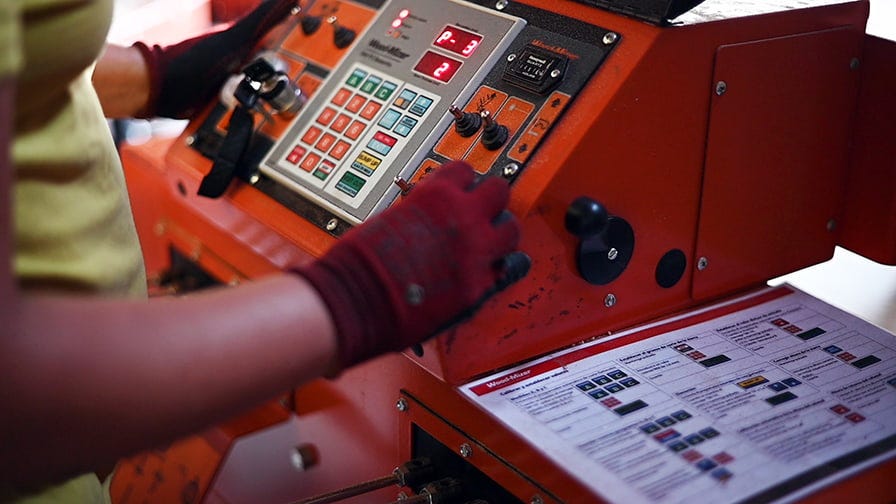

MMBB produces boards in standard sizes: 27 x 155 millimeters wide; length depends on the log length. They currently mill six or seven logs a day.
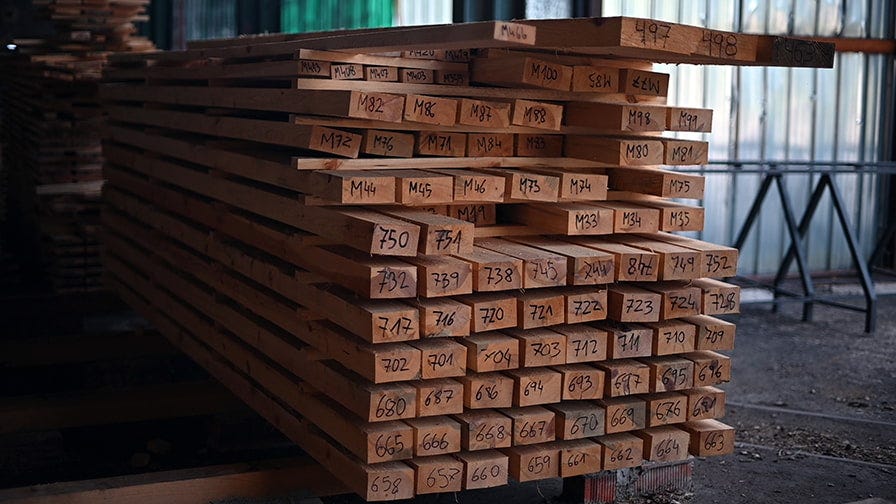

"The LT40 machine is quite easy to operate," says Anna Jordà. "After you train sawing and make a few cuts, you see how it works, you understand everything, and it becomes easy for you. It does not require much effort because it does almost everything itself. The LT40 sawmill lifts log from the ground, loads it onto the bed, cuts it, returns the boards, and you have to stack them."
"The LT40 machine is safe. The saw head moves, but the operator does not walk beside it. You control it from a remote panel; there is no danger. And changing the band blade is also easy. The machine does not require hard maintenance. You have to clean up the sawdust in the sawing area, and you can continue to work."
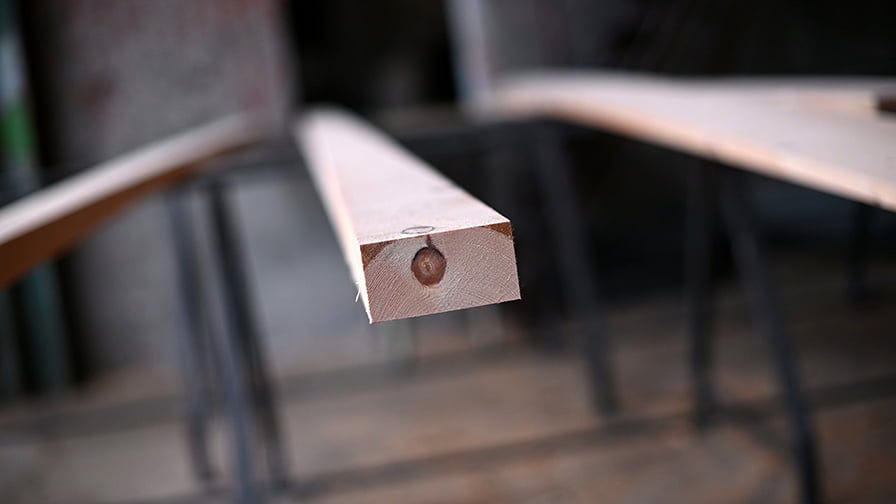

Developing a circular economy
MMBB aims to develop a circular economy and create jobs in their villages.
"We are not worried about depopulation because we are already depopulated. But we can do something important to repopulate these mountain villages. We need real jobs with full-time, not seasonal employment."
Many people from this region already work for MMBB. There are 34 people on staff plus six more.
Another idea is to improve the management of the power plant. "We are now selling thermal kilowatts, but we have fluctuations in consumption. If we produce electric kilowatts, first of all for our villages, and then sell to the network, this will make us more flexible in management."
They wouldn't achieve these results if each town council work alone, putting only their own timber for auction. The number of workers would be less because there would be seasonality. Now they achieve bigger profit based on economy of scale, adding value to the product, and being more efficient.
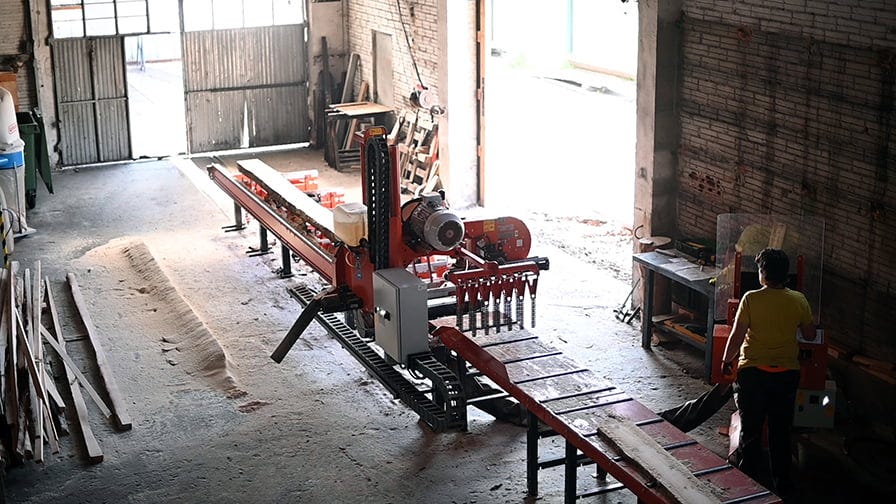

"We must continue to improve where we are not yet sufficiently effective and continue to create jobs that we need a lot."
***

